This content originally appeared on HackerNoon and was authored by the frog society
He was born in front of a live audience.
- Christof, The Truman Show
\ There is no movie that predicts the future better than my favorite, “The Truman Show.”
\ In The Truman Show, Truman Burbank's life is a meticulously crafted spectacle. He grows up in a world that isn't his own, surrounded by hidden cameras capturing every moment for the entertainment of millions, controlled and broadcast from birth by an unseen corporation. But then he slowly unveils the curtain of lies and attempts to escape.
\
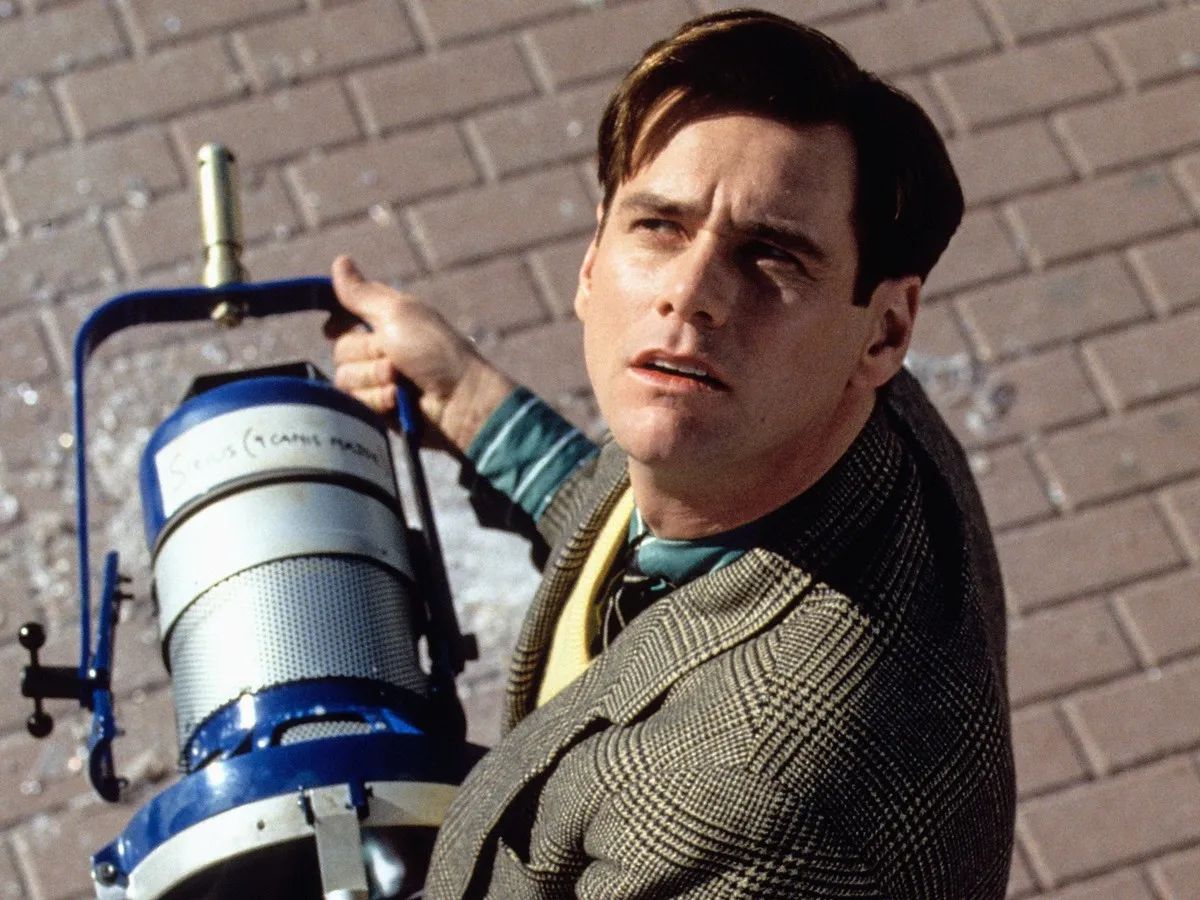
\ At the time of the movie's release, it seemed like a far-fetched critique of media consumption and voyeurism. But today, it reads more like a prophetic warning as the lines between personal life and public entertainment dissolve.
\ The Truman Show was a warning about a world where privacy is an illusion, and now we find ourselves living in that world—only this time, it's real, and our children are at the center of the spectacle.
\ We live in an age where children's lives are increasingly commodified for content, not by a fictional media giant, but by their own parents. The rise of "family vlogging" and "sharenting" has turned childhood into a spectacle, a continuous stream of first steps, birthday parties, and even emotional breakdowns—all carefully curated for likes, views, and sponsorships. These kids aren’t actors being paid for a role; they’re unwitting participants in a 24/7 reality show, often with no say in how their lives are portrayed or monetized.
\ This modern dynamic begs uncomfortable questions: What happens when a child's identity is shaped not by private experiences but by the pressure to perform for a public audience? Are they developing their sense of self or being molded into marketable content? And perhaps most troubling, what are the long-term effects on children who are thrust into the digital spotlight before they can even speak for themselves?
1. Children are a powerful attraction
Child influencers have become a significant part of the social media landscape. Recent statistics indicate that the global influencer market, including child influencers, is projected to reach $22.2 billion by 2025.
\
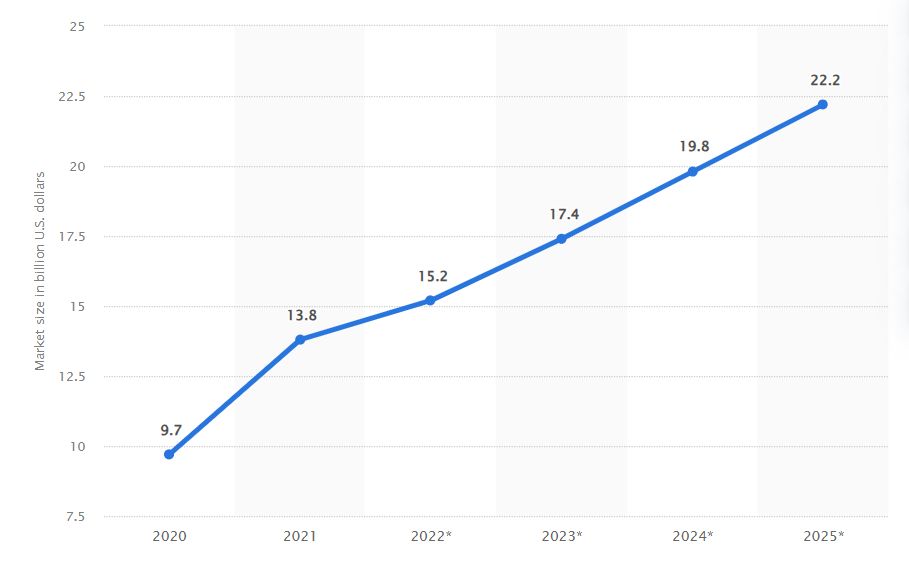
\ We love child influencers because they offer a blend of innocence, authenticity, and entertainment that resonates deeply with audiences. In a digital landscape where so much content feels curated and contrived, children often represent a raw, unfiltered version of life that feels more genuine and relatable. Whether they’re sharing their playful antics, reactions, or everyday moments, child influencers offer a glimpse of unspoiled joy and curiosity, which many adults find refreshing. Who wouldn’t love a child’s innocence?
\ Children also tap into a sense of nostalgia. Watching them explore the world and express themselves reminds us of our own childhood experiences, offering a vicarious return to simpler times. Their wide-eyed excitement, humor, and unpredictability can spark feelings of joy and comfort, creating an emotional connection that drives engagement.
\ Parents often follow child influencers for parenting tips, product recommendations, or simply for the sense of community they provide, while younger audiences relate to them as peers or role models.
\ From a marketing perspective, child influencers are immensely powerful because they appeal to a broad demographic. Almost everyone loves how adorable babies and toddlers are, even more so for a well-known one like an influencer. So these influencers are incredibly attractive to brands, paying a fortune just for their children’s endorsement of their products.
2. The three paradoxes of a child influencer
Talking about child influencers on media is a guaranteed ticket to online argument. This is because the whole area is a murky, messy swamp of paradoxes. More often than not, intentionally or unintentionally, they are using these paradoxes to shield themselves from criticism and controversies. Three paradoxes haven’t been solved yet in the landscape of child influencers:
\
- paradox 1: work and play
- paradox 2: autonomy and control
- paradox 3: privacy and success
\ These paradoxes are difficult to resolve because they exist within larger societal debates about childhood, labor, autonomy, and privacy. The influencer industry pushes boundaries that have yet to be fully addressed or regulated, leaving these contradictions at the heart of debates about child influencers.
Paradox 1: work and play
Associating children with work can spark a blazing shitstorm in media spaces. The common agreement is that to protect children, they must be kept from employment until a particular age. This is why parents of child content creators often claim their child is playing rather than working.
\ The challenge is that there is no single definition of play, likely due to its elusive nature, which varies based on individual perspectives. Most broadly, play is seen as fun, free-spirited, childlike, and driven by intrinsic motivation. Fun is the key.
\ Through play, kids flex their creative muscles, learn to cooperate, solve problems, and come to understand both themselves and the world. It's even considered a fundamental right, extending to the digital playground. However, Garwood points out that play is also the ‘work’ of being a child, which complicates the whole idyllic notion of it being carefree and liberating.
The case of Ryan’s world: full of play or full of work?
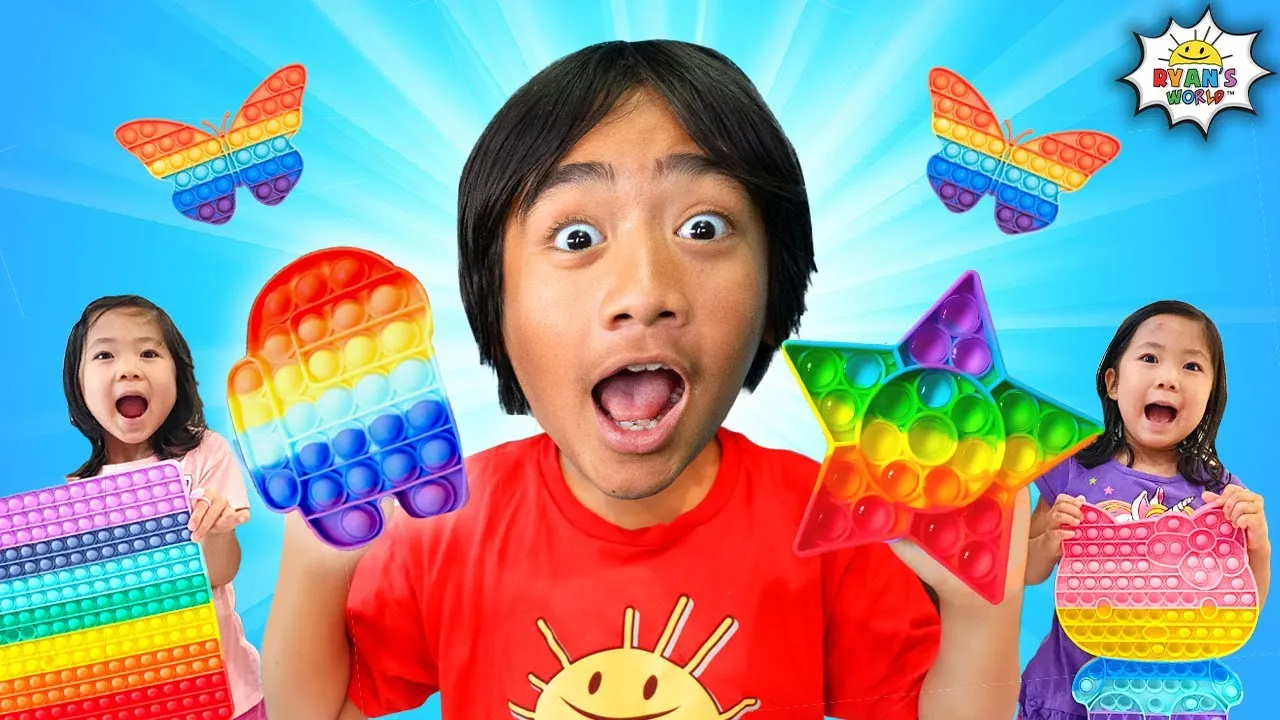
Ryan's World is a popular YouTube channel aimed at children. Ryan from Ryan’s World is one of the highest earners, if not the highest earner on YouTube. The channel features young Ryan Kaji, his parents (Loann and Shion Kaji), and his twin sisters (Emma and Kate). It typically publishes new videos daily.
\ Forbes revealed that Ryan Kaji made $11 million from 2016 to 2017, ranking as the eighth highest-paid YouTuber at that time. He dominated the list in 2018, 2019, and 2020, earning $22 million, $26 million, and $29.5 million, respectively, from his videos and related merchandise.
\ Unboxing sponsored toys might seem like pure fun to the child influencer, which could technically qualify it as play. But, of course, it isn’t quite that simple. Sponsored content bites deeply into that playfulness, infecting it with work—deadlines, expectations, and, let’s not forget, payment.
\ Toy unboxing videos frequently feature a 'staged' element since advertisers oversee the content created by child influencers. Nonetheless, children authentically experience excitement from the toys they showcase. To meet advertisers' demands, child influencers must adhere to scripts, meet campaign deadlines, and obtain approvals from brands.
\ So, while it feels playful, it can’t be purely classified as such because it also has labor-like characteristics. This creates an odd interdependence, where the playful and the professional are two sides of the same coin. Yet, calling it purely labor also misses the mark, because—well—it’s still play, after all.
What does Karl Marx think of child influencers?
Karl Marx distinguishes work as a free, vital activity for all societies, while labor is a purposeful, value-creating activity where the worker loses ownership of production and must sell their labor power. The sale of labor power refers to the commodification of labor, in which workers trade their capacity to work for a commodity from capitalists.
\ Marx contends that when labor is treated as a commodity, it leads to the alienation of workers from the processes of their work. Exploitation and alienation are closely related, with alienation being both a condition and a result of exploitation. This is a fundamental aspect of capitalism.
\ Thus, people who produce content and upload it on social media are involved in labor in the capitalist economy. The process of commodification is present in the digital capitalist system, activating alienation for content creators on YouTube. While YouTube allows content producers to make money, interact with their audience, and express their creativity, the creators are also subject to the algorithmic systems and laws of the platform.
The term 'child labor' refers to the exploitation of children, robbing them of their childhood, education, and overall development. In essence, child labor is detrimental to both the physical and mental growth of the child. Similarly, children involved in social media face risks akin to those of traditional child performers, including financial insecurity, health dangers, and significant loss of privacy.
Yet existing child labor laws do not perceive child influencers as child laborers, despite their time and effort in content creation, which are essentially forms of labor.
\
Although influencer work may not involve the same immediate dangers as children working in mines or sweatshops, there are potential long-term negative effects from constantly being in the public eye. This highlights the idea that modern child labor has evolved into a new form. \n 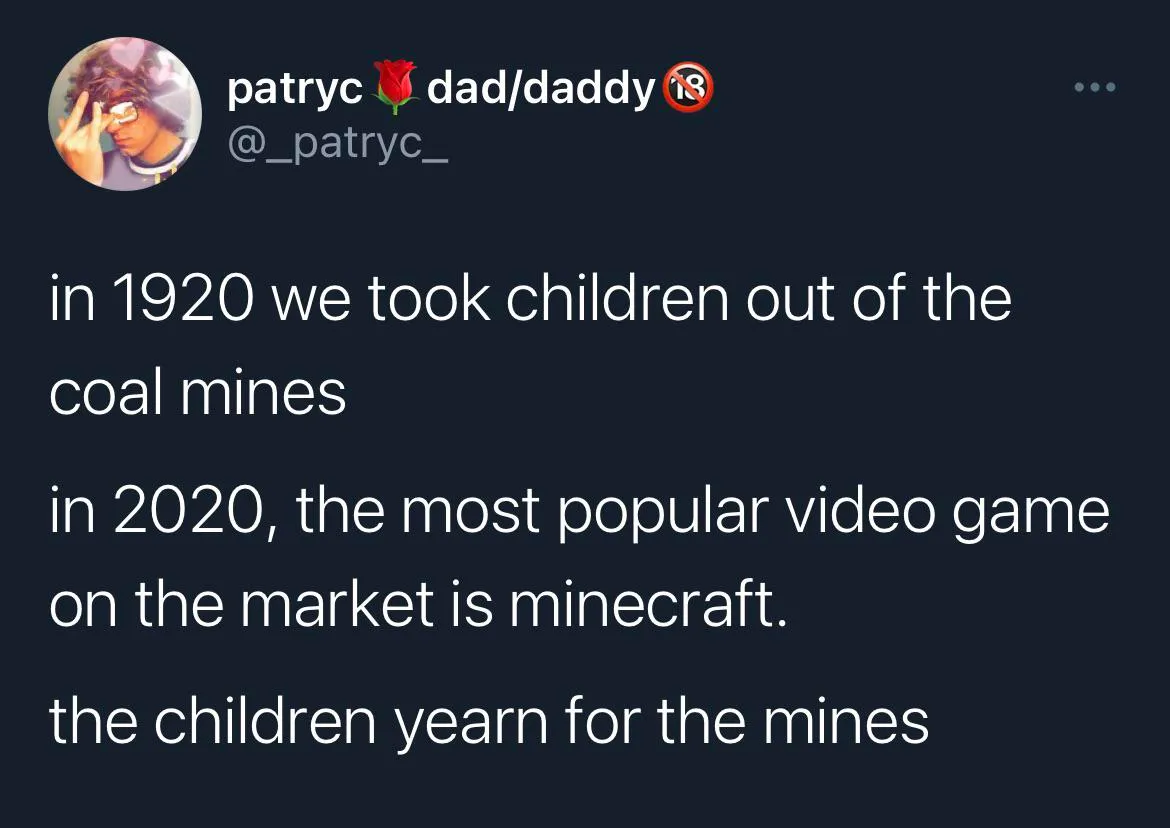
The blurred lines between work and play
The authenticity of play adds to the tension of labor and play, revealing a transversal paradox. De Veirman et al. claim ‘the influencer does not pretend to play and have fun with toys; he/she really does’.
\ The carefully crafted spontaneity of sponsored child play may stem from children striving to meet parental expectations, resulting in emotional labor. Emotional labor involves altering one’s emotions and outward expressions to align with the psychological and emotional demands of a particular task or environment.
\ The ideology of play promotes the idea of liberation and fun—being the opposite of work. But, if we’re being honest, work is never just work, and kids' play isn’t always purely play either. There’s even a genre of video games whose sole purpose is to simulate our work in real life.
\ Masterson argues that child influencers' content creation "cannot just be considered play—it is work.” Insisting that play is purely play only reinforces the outdated binary of work versus play, when, in reality, they often exist together in a ‘both/and’ scenario.
Play frequently includes work-like activities. First and second graders felt both enjoyment and pressure when their teachers urged them to finish their coloring assignments.
\ It's the same in the digital world of child influencers—media critics argue that working for brands robs these kids of their childhoods.
According to W.K. Smith and Lewis, this is the kind of paradox where the elements seem perfectly rational on their own, yet utterly absurd when they exist together. And here we have children, engaged in what looks like carefree play, all while being compensated for their efforts. The lines between play and professional obligation blur, dropping us into what can only be described as a ‘grey zone.’
At the end of the day, the determining factor of whether [this particular thing] is play for the child or not is whether they genuinely enjoy doing it or not.
\ Playing with their younger brother can be work; mopping the floor can be play.
Fun is the key.
Paradox 2: autonomy and control
You don’t think that a child who is barely in kindergarten can really operate a multimillion-dollar business, do you? Good. Of course, some adults will step in. In most of the cases, it’s their parents.
\ Children need their independence and self-expression, but because children are scientifically dumb, they also require parental oversight and regulation. These two things negate one another, and more so in the case of child influencers. The child and the parent’s relationship in this case remarkably resembles the relationship of a K-Pop idol and their managing company.
\ The first thing that parents control is how a child is appearing on screen. Not just his appearance, literally. A child being themselves is not necessarily always interesting to watch. So the parents have to define what kind of content the child has to make to attract audiences. Being interesting to watch is essential in building a profitable brand and influencer business.
\ Additionally and obviously, most children do not know nor care about the nuanced technique of creating content and monetizing it. They know even less than zero about how to manage a production crew, how to do market research, and how to book interviews that boost their images. But their parents do. Advertisers do not directly engage with child influencers; it is the responsibility of the parents.
\ Parental support is the prerequisite for a child to become an influential star. Winckler emphasizes that child influencers cannot operate without parental involvement, as parents manage most behind-the-scenes aspects of content creation.
\ Parents must guarantee their child fulfills advertising obligations, using play as a deliberate strategy to achieve serious goals. Within the socially constructed realm of the child, where fun and labor merge, children create content often directed by parents and advertisers to attract viewers and generate income.
\ Despite legal protection for parental freedom in the law, there is limited academic attention on the social implications and conflicts at the intersection of laws, parental authority, and online information sharing in the context of child influencers. Children are left in the hands of their parents, who manage their commercial success.
\ Play is, thus, intentionally turned into a consumeristic act. This intent, driven by parents’ efforts to meet advertiser demands, impacts the child’s motivation for content creation and the authenticity of their engagement.
\ The power imbalance between child influencers and their parents presents significant concerns. As children mature and become increasingly aware of their digital presence, they remain under the control of their parents, prompting questions about their actual agency. This dependency fosters a top-down dynamic from parent to child. Sadly, cases of exploitation and abuse, like those on family vlogging channels such as 'DaddyOFive' and 'FamilyOFive,' demonstrate how excessive parental authority can undermine children's autonomy and well-being.
Autonomy in creating your persona
Whilst parents play a crucial role in shaping their child’s online presence, ultimately, the child’s image is often what drives product sales.
When a child’s online persona is curated and distinct from their offline life, it creates confusion about their true identity. As they grow older and try to establish their personalities, children may struggle to reconcile the exaggerated, often highly visible online identity with who they are in real life.
\ Additionally, potential employers, friends, or partners might form preconceived notions based on the child’s online persona. The inability to control how they are represented as children can hinder their ability to manage future relationships on their terms. A mother of three child influencers, in an interview, told WIRED about her influential children, ‘If there are days they’re totally not into it, they don’t have to be… Unless it’s paid. Then they have to be there. We always have lollipops on those days’.
\ This conditional autonomy contradicts genuine autonomy, suggesting that choice may be influenced by advertisers or personal obligations rather than the child’s preferences alone.
\ Furthermore, exploring the potentially conflicting motivations driving parents and child influencers is warranted. The parent-child relationship often resembles a power contest, with parents generally wielding more authority, though influence can operate from both ends.
Paradox 3: privacy and success
The struggle between being open to success and keeping a child safe online isn't just a tricky balance; it’s like trying to ride two horses in opposite directions.
\

\ Pamyeuoi, or Pamela Hải Đường, is a young social media sensation from Vietnam, known for her massive online presence despite being only a toddler. Her journey began with her parents, influencer Salim and businessman Hải Long, who have shared glimpses of her life on social media. What started as endearing family content quickly caught the attention of brands due to Pam's overwhelming popularity, especially on platforms like Instagram and TikTok, where she garners millions of interactions.
\ Pam's brand collaborations began with her becoming the face of Comfort's gentle care products, aligning her pure and adorable image with the brand’s family-oriented values. Her presence in advertising extended to major brands such as Huggies, Zara, UNIQLO, and Crocs, often in collaboration with her mother.
\
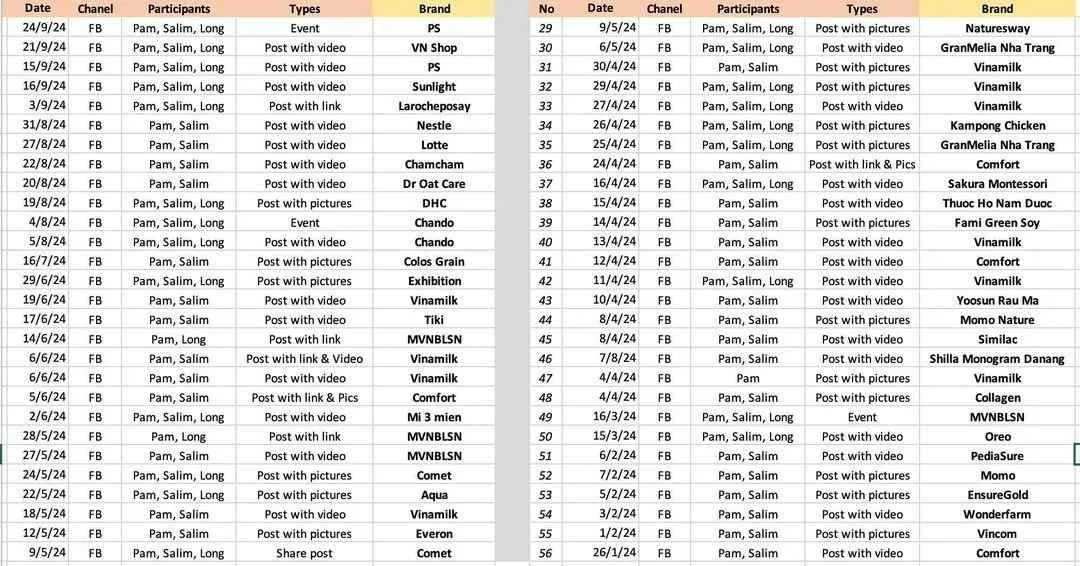
\ The combination of her cute charm and her parents' influence has made Pam a sought-after figure in Vietnam's influencer marketing landscape, earning her sponsorship deals and participation in high-profile campaigns.
\ Despite her success, her parents face public scrutiny about the ethical implications of using their child's image for commercial purposes. However, they have taken steps to protect her privacy while navigating the balance between sharing her life and capitalizing on her fame.
When parents share their child’s life online to build fame, they give up a piece of that child’s privacy. But if they keep everything private, they can’t achieve the level of openness that’s needed to succeed on social media. It’s a lose-lose situation: You can’t win in the child influencer world without posting content, but posting exposes the child to risks. Posts invite traffic, traffic invites followers, and followers bring sponsorship deals.
\ Influencer parents are caught in this paradox because they have two jobs: protect their child's privacy but also create content to build their online presence. Normally, this kind of privacy dilemma comes up when people reveal personal information, but with “sharenting” (parents sharing their kids’ lives online), it’s even more complicated.
\ Sharenting involves posting pictures, stories, and videos about a child’s life. Most of the time, this is harmless. When children become influencers, this takes on a whole new level—now, the child’s face and life become a brand. But with this comes a big question: how much of the child’s privacy is sacrificed for fame?
\ While sharenting is a hot topic, we still don’t fully understand how vulnerable child influencers are in this environment. The real question we need to ask is: how does this privacy paradox make child influencers more vulnerable? And how does it affect their overall well-being as they grow up in the digital spotlight?
\ Imagine a child walking a tightrope between fame and privacy. The more they lean toward success, the more they lose their balance with privacy. To truly understand what’s going on, we need to dig deeper into the tricky dynamics at play—how being vulnerable and authentic online collides with the goal of building a brand.
Vulnerability and authenticity
Children, as digital citizens and consumers, face unique vulnerabilities in the marketing landscape. Compared to adults, they are more susceptible to temporary, situational-based risks as they navigate the online world. This vulnerability is heightened when parents commercialize their child’s images, often without the child's consent, raising complex ethical concerns.
\ Children typically have limited agency over how parents share their personal information online, which can inadvertently put them at risk. Even with well-intentioned efforts to create online content, such as parents of child influencers, privacy risks persist.
\ The drive for perceived authenticity—sharing personal details like a child’s name, age, and daily activities—fuels the success of content creators, but at the cost of increased privacy risks. For child influencers, this pursuit of authenticity often heightens their vulnerability.
This raises a critical question: Do the benefits of an online presence, such as sponsorship deals and fulfilling audience expectations, outweigh the privacy risks?
\ Monetizing content featuring child influencers also presents a double-edged sword. While an active online presence is essential for attracting brand partnerships, weak legal protections for child influencers leave them vulnerable to various online threats. This underscores the urgent need for stronger legislation addressing children’s online privacy.
\ As children engage in monetized content creation, they become socializing agents, learning consumer behaviors early on. However, this process makes them even more vulnerable, particularly during the formative stages of their online presence and consumption.
3. Shouldn’t we leave parents the fuck alone as they raise their children?
At first glance, the argument that parents should be left alone in raising their children feels fundamental to the principles of freedom and autonomy.
\ After all, families have always been seen as sacred spaces, where external judgment has no place unless there’s evident harm. But when a child’s life is transformed into a series of Instagram posts or YouTube videos, we are no longer witnessing private moments of parenting—we’re engaging with a performance on a public stage.
\ This brings us to a deeper question: What does it mean to raise a child in a world where the boundaries between the public and private are dissolving? Traditionally, childhood has been a time for personal growth, a period of protection from the harsh realities of the adult world. By exposing children to the unforgiving arena of online visibility, are we robbing them of that essential developmental space?
Some might argue that in good faith, parents, who know their children best, have the right to navigate this space as they see fit. But to Rousseau, who stressed that childhood is a distinct phase of life that should be shielded from adult pressures, that is a garbage opinion.
People don’t magically gain all necessary parental knowledge and philosophy when they birth their child into this world. Parents, despite their good intentions, might unknowingly entangle their children in a system that prioritizes likes and views over genuine personal development.
\ There are just so many child movie stars that spend years unpacking the trauma that the early fame has brought to them, a lot of the time greatly amplified with the help of their parents. Parents don’t always know best. Influencer children might be next. Stop with the bullshit.

\ This is not to accuse parents of malice but to ask:
Are they navigating a system designed for the child’s well-being or one optimized for profit and engagement?
\ And if it's the latter, don't we, as a society, have a moral obligation to protect children from becoming the product?
Children, by nature, lack the agency to consent to being a part of this spectacle. They’re unable to fully understand the long-term consequences of growing up online. If their parents don’t help them and society turns a blind eye, then who will?
Are there any exclusive benefits that participating in an advertisement offers to the development of a child?
As The Truman Show draws to a close, Truman finally breaks free from the fabricated world that held him captive for so long. He steps out of the artificial bubble that controlled every aspect of his life and into the unknown, finally reclaiming his freedom. But can the children raised in today's digital age ever hope to do the same?
\ Unlike Truman, they aren’t locked in a physical dome, but their entire existence is documented in the vast, inescapable expanse of the internet. The digital footprint left by years of content is permanent, shaping their identities in ways they may not understand until they’re older. They grow up with millions of strangers knowing their names, faces, and even the most personal aspects of their lives—an audience they never consented to entertain.
\ The question is: Will they have the same chance Truman had to walk away? Can these children reclaim a sense of privacy and autonomy, or are they forever bound to the online personas created for them by others?
\ Perhaps one day they will break free from the virtual dome that now encircles their childhood. But unlike Truman, they’ll need to wrestle with the complex reality of a world that remembers every click, every post, and every video.
\ Ryan, hitting his adolescence in 2025, is still posting videos daily.
No child deserves to be commercialized. No child deserves to be an influencer.
:::tip Subscribe to my newsletter for more posts like this.
:::
\
This content originally appeared on HackerNoon and was authored by the frog society
the frog society | Sciencx (2024-10-06T10:57:33+00:00) Children Should Not Be Content: The Case Against Kid Influencers. Retrieved from https://www.scien.cx/2024/10/06/children-should-not-be-content-the-case-against-kid-influencers/
Please log in to upload a file.
There are no updates yet.
Click the Upload button above to add an update.
